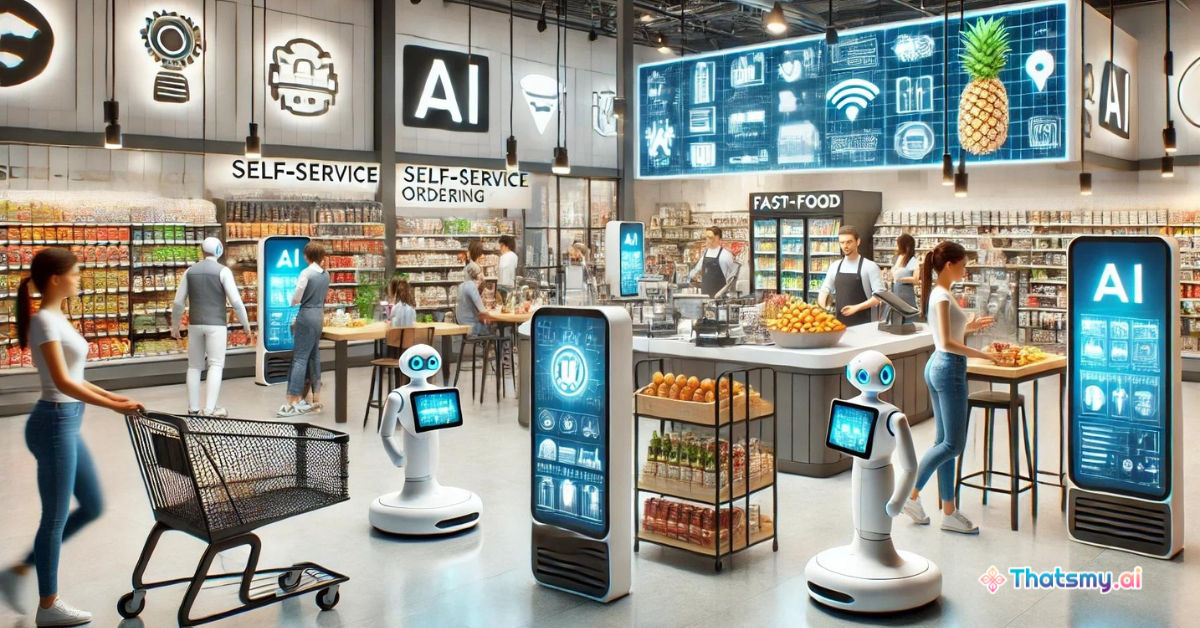AI and automation are transforming grocery stores and fast-food chains by streamlining operations, enhancing customer experiences, and addressing labor shortages. Major chains like Chipotle, McDonald's, and Yum! Brands use AI for tasks such as cooking management and automated order taking. Grocery stores are adopting technologies like Walmart's Alphabot for faster order fulfillment. While these advancements improve efficiency and customer satisfaction, they also impact the labor market by shifting job roles towards tech maintenance and development. The future holds even more integration of AI, promising further optimization and innovation in these industries.

Artificial intelligence (AI) and automation are transforming the grocery and fast-food industries, introducing efficiency and innovation. These technologies streamline operations, enhance customer experiences, and address labor shortages.
Major fast-food chains are leveraging AI to improve various aspects of their operations. Chipotle, for example, uses a robot named Chippy to make tortilla chips and an AI-driven system to manage cooking schedules, reducing food waste and increasing kitchen efficiency. McDonald's is developing Automated Order Taking (AOT) technology with IBM, enabling faster and more accurate order processing without human interaction. Yum! Brands utilizes AI to predict food demand, improve inventory management, and enhance online ordering through chatbots, leading to better customer service and reduced waste.
The grocery industry is also embracing automation. Walmart's Alphabot system automates order fulfillment, speeding up the process and ensuring accuracy. AI-powered solutions in grocery stores help manage inventory, predict demand, and personalize customer experiences. For instance, smart carts and self-checkout systems reduce wait times and improve shopping convenience.
AI and automation enhance customer experience by offering personalized recommendations and quicker service. For example, AI-driven upselling strategies in fast-food restaurants can suggest complementary items based on previous orders, leading to increased customer satisfaction. However, these advancements also impact the labor market, potentially reducing jobs in traditional roles like cashiers and cooks while creating new opportunities in tech maintenance and software development.
The future of AI and automation in these industries looks promising. We can expect more sophisticated AI-powered robots performing a wider range of tasks and deeper integration of these technologies in all aspects of food production and service. The continuous development of AI tools will help fast-food and grocery stores further optimize operations, enhance customer service, and improve overall efficiency.
Sign up to gain AI-driven insights and tools that set you apart from the crowd. Become the leader you’re meant to be.
Start My AI Journey
ThatsMyAI
20 March 2025

ThatsMyAI
7 March 2025